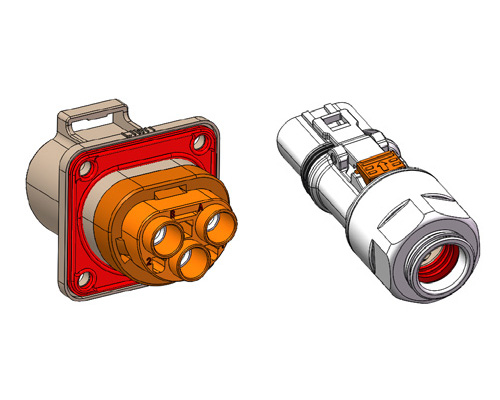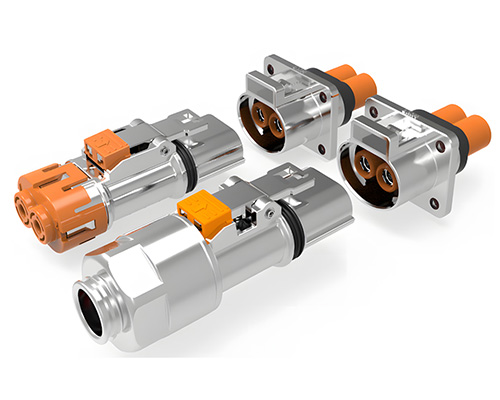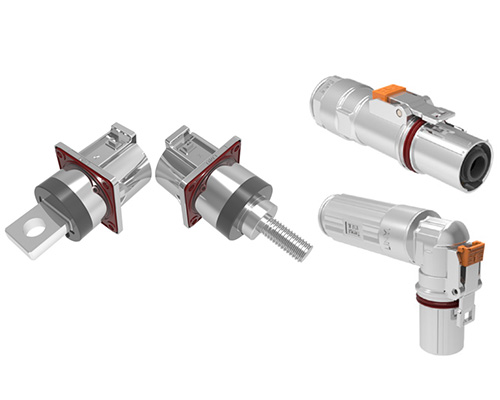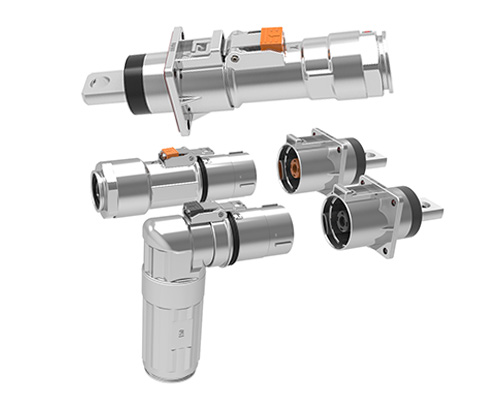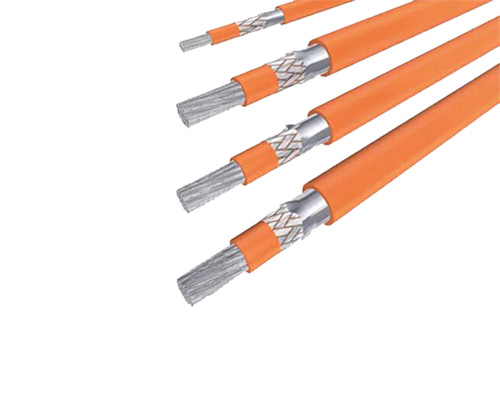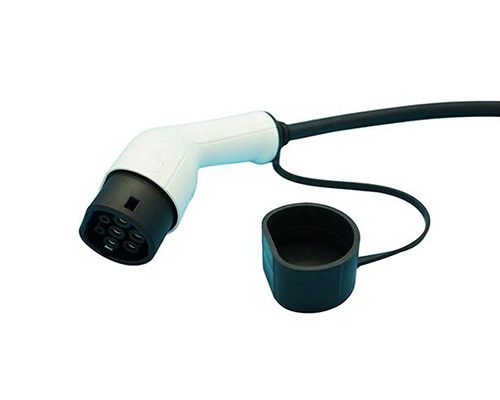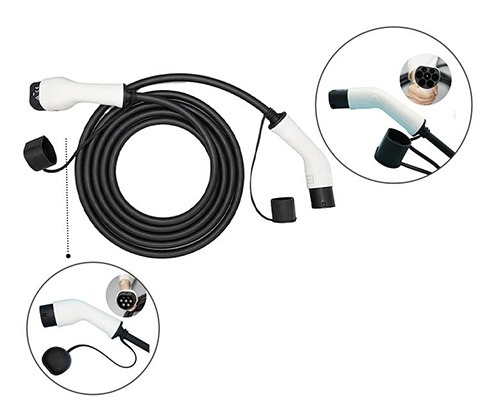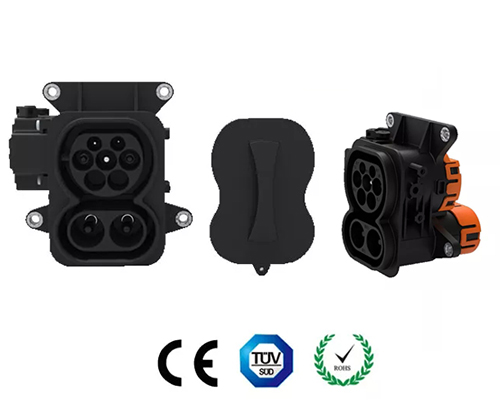What You Need to Know about EV High-Voltage Connectors?
Q: What is an EV Connector?
A: An electric vehicle (EV) connector is a specialized connector that ensures high-voltage safety in EV and BEV. EV connectors are designed to safely transmit high-voltage signals to and from electric vehicles.
Installation: An EV connector is designed to be installed on top of a cable. It has a male or female design, which means that it only fits into the correct type of ports. The port is usually protected by some sort of cover, such as a rubber grommet or a plastic housing.
Properties: In order to transfer large amounts of power safely, EV connectors have been designed with specific properties that help ensure operator safety. These connectors can handle high voltages without compromising performance or causing injury.
The most important property of an EV connector is its ability to use in harsh environment and resistant to extreme conditions, such as low/high temperature tolerance, vibration resistance and corrosion resistance. The best EV connectors should be able to withstand extreme temperatures from -40 to +140 degrees Celsius.
--------------
The main requirements for an Guchen high voltage cable connector are:
Operating temperature range: -40°C to +140°C;
Working voltage: up to 1000V DC;
insulation resistance: 5000Ω;
--------------
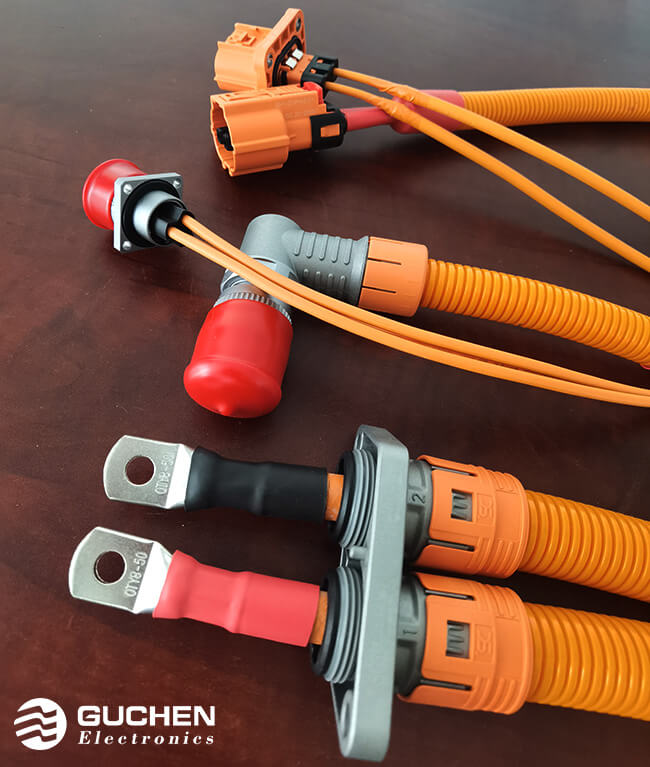
The third property of an EV connector is to connect with different types of cables or wires.
Applications: These special types of connectors are used in electric cars, trucks, buses and other types of EV & HEV applications. They provide a means for transferring power between the vehicle’s battery and its HV components. It is compatible with various applications such as on-board charger, electric motor, motor controller, PDU (power distribution unit) etc.
Q: How Many Types of EV Cable Connectors are there?
A: When it comes to electric vehicles (EVs), it's important to be aware of the various types of connectors used in their high voltage interconnection systems.
There are two main types of EV connectors: the first one is called a "plug-in" connector and the second one is called a "wire-in" connector.
◆ The plug-in connectors are used for charging purposes, call as EV charging connectors. The EV charging connectors are the connectors that can be used to charge an electric vehicle. The two most common types of EV charging connectors are:
---DC fast charging connector: This is the type of connector that is used for very fast charging of electric vehicles when they need to be charged in less than 30 minutes. The most common type of connector used by EVs is the Combined Charging System (CCS). The CCS connector can handle up to 350 kW of power and has been designed to work with DC chargers that can provide more than 50 kilowatts of power. These DC chargers are commonly found at public places like airports, gas stations and shopping malls.
---AC connector: The slowest type of EV charging is done using AC power, and it's the most common type of home charging station. These connectors are designed for charging your car overnight or during the day at work, and don't require any special equipment or installation.
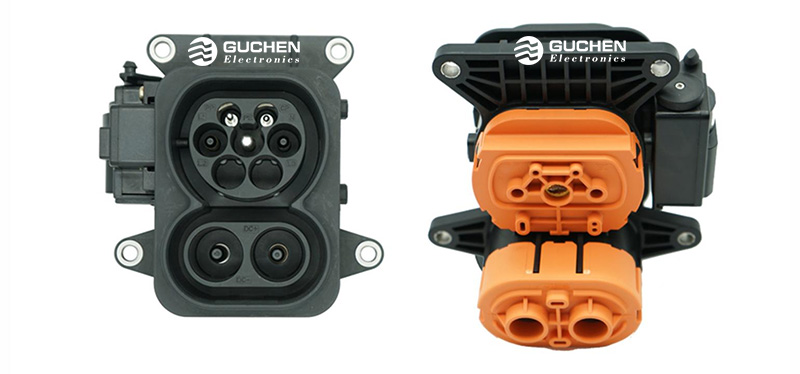
Q: What are Some Common Applications for Electric Vehicle HV Connectors?
A: The EV HV Connectors are mainly used in electric vehicles such as buses, trucks, vans and cars. In recent years, with the rapid development of electric vehicles and renewable energy sources, the demand for high-voltage connectors has been surging. They are designed for high voltage interconnection between battery pack, PDU, electric motor, MCU, and so on. They are designed to handle high power and high temperature. In addition, they have resistance to vibration, corrosion, and electromagnetic interference (EMI).
Q: Can I Use a Standard HV Connector on a Car?
The answer is NO. The pin configuration of the standard HV connector has been defined to match with the vehicle wiring harnesses and it is not compatible with any other type of connectors. Not all EVs have the same connectors. There are different types of connectors for different EVs.
Message
If you are interested in our products, please fill in the message form below. Our sales representative will contact you within 24 hours.






